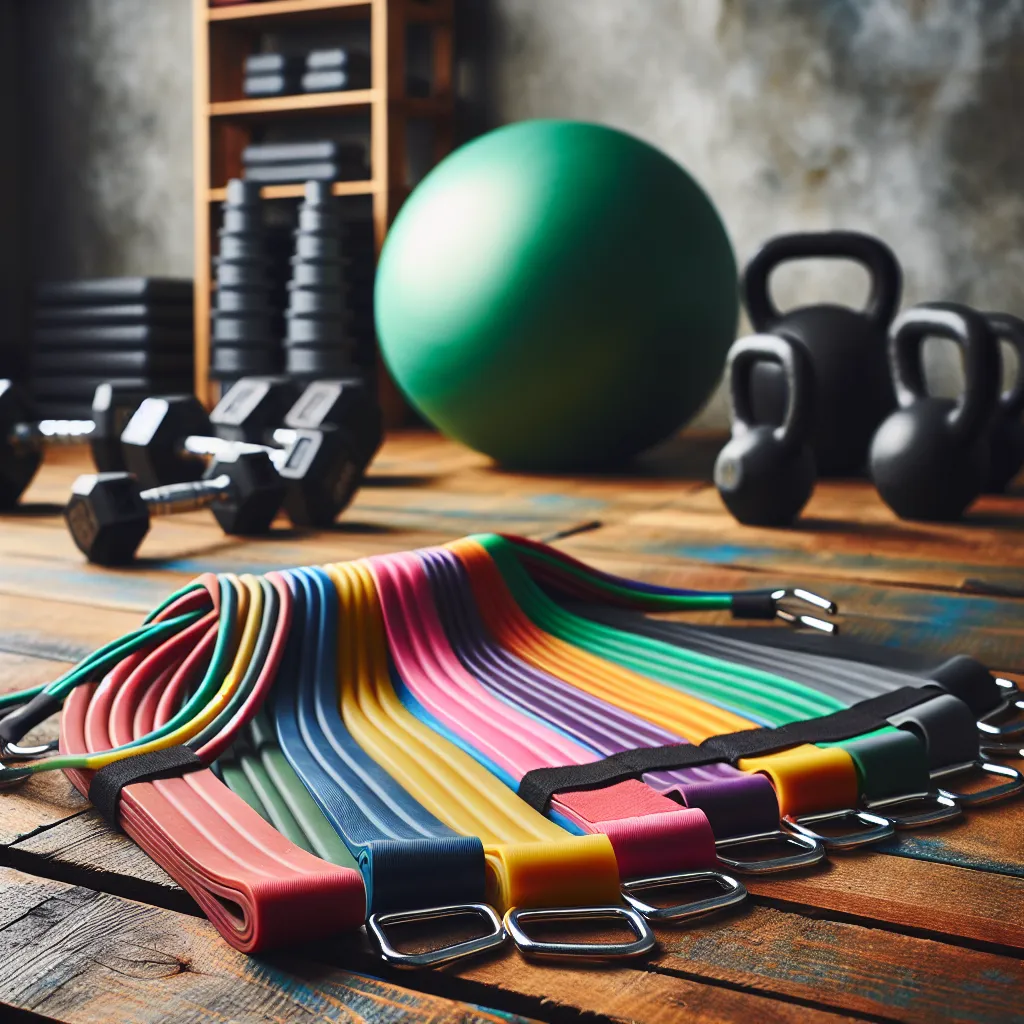Resistance bands are a popular fitness tool that frequently appears in IELTS exams, especially in the Reading and Speaking sections. Understanding this term and its related vocabulary is crucial for achieving a high score. Let’s dive into the world of resistance bands and expand your IELTS vocabulary!
Definition and Pronunciation
Resistance bands (noun): Elastic bands or tubes used for strength training and physical therapy exercises.
Pronunciation: /rɪˈzɪstəns bændz/

Context and Usage
Examples in Context
-
Resistance bands offer a versatile and portable option for strength training at home or while traveling.
- This sentence demonstrates the practical use of resistance bands in everyday fitness routines.
-
The physical therapist recommended using resistance bands to rehabilitate my shoulder injury.
- Here, we see the application of resistance bands in medical contexts, specifically for rehabilitation.
-
Many athletes incorporate resistance bands into their workouts to improve muscle strength and flexibility.
- This example showcases the use of resistance bands in professional sports training.
-
The gym’s beginner class introduces various exercises using resistance bands to build core strength.
- This sentence illustrates how resistance bands are used in group fitness settings.
-
Resistance bands come in different levels of tension, allowing users to progressively increase the difficulty of their workouts.
- This example highlights the variety and adaptability of resistance bands for different fitness levels.
Common Contexts
Resistance bands are frequently mentioned in contexts related to:
- Home workouts
- Physical therapy and rehabilitation
- Sports training
- Group fitness classes
- Travel-friendly exercise equipment
Frequency in IELTS
The term “resistance bands” and related vocabulary often appear in IELTS Reading passages about fitness, health, and sports science. In the Speaking test, it may come up in questions about exercise habits or modern fitness trends. While less common in Writing tasks, it could be relevant in essays about health and lifestyle.
Vocabulary Analysis
Word Structure
- Resistance (noun): resist (verb) + -ance (suffix indicating a state or quality)
- Bands (plural noun): band (singular noun)
Synonyms and Antonyms
Synonyms:
- Elastic bands (/ɪˈlæstɪk bændz/): Stretchable bands used for exercise.
- Exercise tubes (/ˈeksərsaɪz tuːbz/): Tubular form of resistance bands.
- Fitness bands (/ˈfɪtnəs bændz/): Bands specifically designed for fitness purposes.
Antonyms:
- Free weights (/friː weɪts/): Non-elastic weights used for strength training.
- Weight machines (/weɪt məˈʃiːnz/): Fixed equipment for resistance training.
Memory Techniques
Mind Map
Create a mind map with “Resistance Bands” at the center, branching out to related concepts:
- Types (loop bands, therapy bands, figure-8 bands)
- Uses (strength training, rehabilitation, flexibility)
- Benefits (portable, versatile, low-impact)
- Exercises (bicep curls, leg extensions, chest presses)
Storytelling
Imagine a traveler named Rachel who always packs her resistance bands in her suitcase. She uses them for quick workouts in hotel rooms, demonstrating their portability. When she returns home, she attends a physical therapy session where the therapist uses resistance bands to help her recover from a minor injury, showcasing their versatility in both fitness and medical contexts.
Practice Exercises
-
Write a paragraph describing the benefits of using resistance bands in a home workout routine.
-
Create five sentences using “resistance bands” and at least one synonym or related term in each sentence.
-
Imagine you’re explaining the concept of resistance bands to someone who has never used them. Write a short dialogue incorporating key vocabulary.
-
Practice your speaking skills by recording yourself discussing the advantages and disadvantages of resistance bands compared to traditional weights.
-
Write a compare and contrast essay between resistance bands and free weights, focusing on their effectiveness in strength training.
Conclusion
Mastering vocabulary related to resistance bands can significantly enhance your performance in the IELTS exam, especially in health and fitness-related topics. Remember to practice using these terms in various contexts and incorporate them into your speaking and writing exercises. By doing so, you’ll not only improve your IELTS score but also gain valuable knowledge about fitness and physical therapy practices.
We encourage you to share your experiences with learning this vocabulary in the comments section below. How have you incorporated resistance bands into your fitness routine, and how has this knowledge helped in your IELTS preparation? Your insights could be invaluable to other learners!